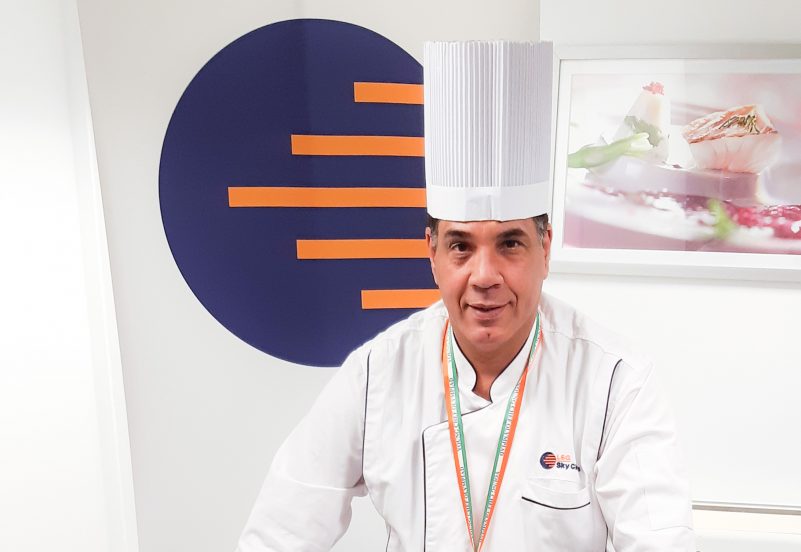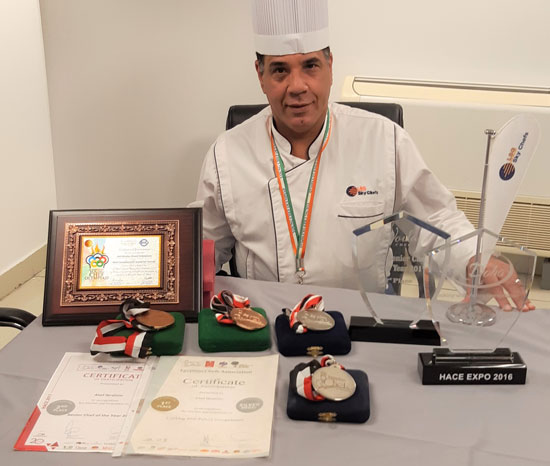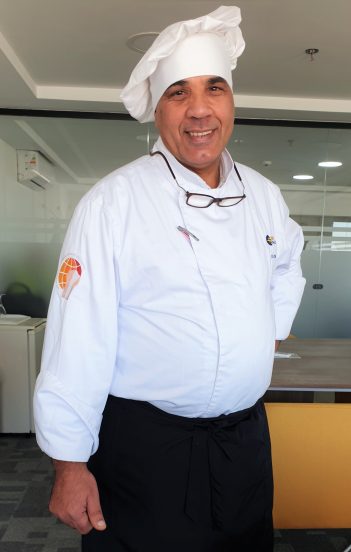Being a chef during Ramadan in the time of Coronavirus

Last week, more than 1.8 billion Muslims around the world began observing Ramadan. Although the COVID-19 pandemic will challenge the normality of this holiday, this hasn’t stopped them from finding innovative (and safe!) ways of celebrating. Ramadan, also known as the holy month of fasting and abstinence, takes place between Thursday, April 23, and Saturday, May 23. Fasting during daylight hours is among the most important practices, thus leaving the Suhur (before sunrise) and the Itfar (after sunset) as the only opportunities to consume food.
We talked to Chef Ibrahim Atef, an awarded chef who has been working for LSG Sky Chefs for over 17 years about the importance of this celebration, its challenges and the meals they prepare throughout Ramadan.
What does this celebration mean to you?
For me, it is a unique opportunity to spend time with my family, especially with my two children with whom I share the same passion for cooking. They have both been recognized for their skills as chefs in culinary competitions, and I am very happy to enjoy the Itfar with them every day.
How is Ramadan usually celebrated in the Cairo CSC?
Usually, the company organizes a fast-breaking event with the idea of sharing a good time with our colleagues along with a nice dinner but, unfortunately, this year it will not happen due to the coronavirus outbreak.

How do you taste the food you cook when you are fasting?
Egypt’s population is 10 to 20 percent Christian, so the staff members who are not Muslim taste the food.
Do you think the food during Suhur (before sunrise) should be heavy and plentiful? What do you eat before sunrise?
Since this food has to keep us active until sunset, it has to be hearty, but not too heavy. What is important is the quality of the food so that we can continue to work one hundred percent, especially those who are more physically active.
Before sunrise, we usually drink fresh juices like Karkade (Hibiscus) and eat natural yogurt, tahini, cheese, dates and bread among other local foods.
Are there any variations in the dishes you cook for Ramadan? Are there any special requests from airlines?
Unfortunately, due to the current situation, we do not have a significant production this year, so we do not have any special orders either.
However, for normal Ramadan periods, we usually adapt the menus according to the client’s needs. For example, the meals are generally heavier and sweeter.
In the next few days, we will be catering a Malaysia Airlines flight and the menu will include traditional items like Tahina, Sayadeia fish, oriental rice, fresh vegetable mix and the popular date chocolate cake.
How is the coronavirus pandemic affecting the normality of this celebration?
While our meal preparation for some airlines is running on a smaller scale, we continue to distribute meals for 1,700 people at Cairo airport, including the airport police and the Egyptian ground service. However, the coronavirus is already limiting our activities and we had to cancel our fast-breaking celebration.
For us, social distancing is very important, and since the celebration is based on bringing all of us around a table full of food, it’s impossible to do it this year.
Despite the current situation, we are still looking for a responsible way to celebrate the end of Ramadan this year at home, with our families.
Happy Ramadan and stay healthy!
